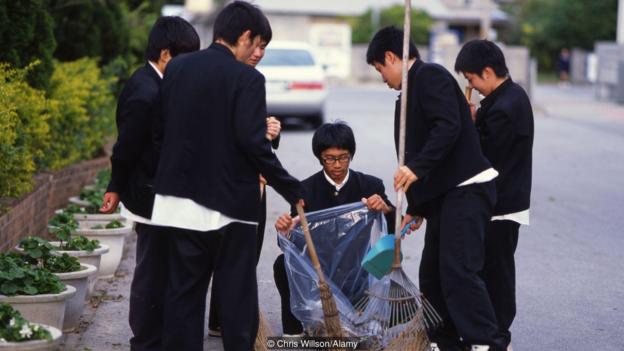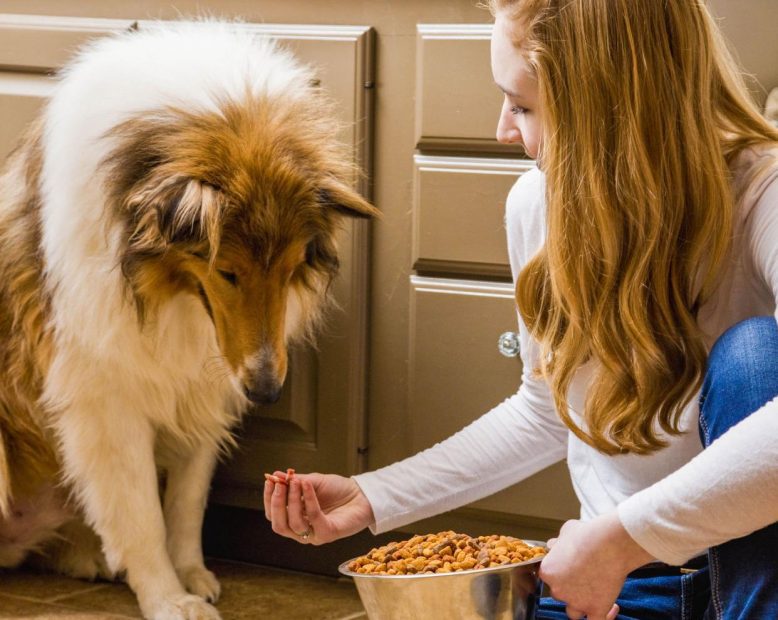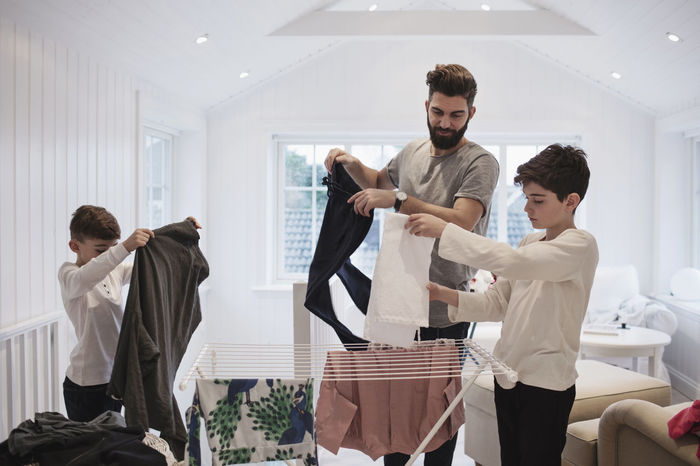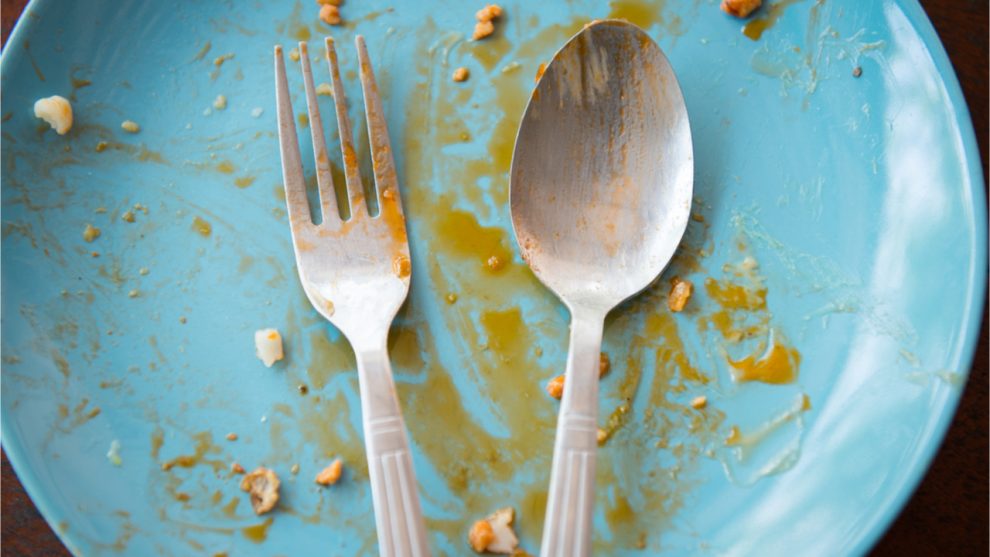I have 2 sons and like most parents, my husband & I have (eventual, long-term) expectations of them, but to make those ‘expectations’ a reality, I need to prepare my kids for life. I realize that as a mom, it’s difficult most time to let go of the reigns & trust our kids with chores or responsibilities. Routine is easier and a “never mind, it’s quicker if I just do it myself” attitude is my default mode. Sure, at the end of the day this means fewer hiccups, less yelling & a cleaner home…. But at what cost? As our children grow up, not giving them responsibilities is an opportunity stolen – an opportunity for them to learn, to really grow up, to be successful adults & contribute individually and collectively to society.
So, keeping this in mind, here are a few critical chores, I believe, are connected to success and if taught to a child early enough, will develop positive & effective habits later on in their adult life. If you can get your kids to do these willingly & correctly on their own by age 12 (if not before), count yourself lucky 😊
Making the Bed: Setting Goals

Here’s what making your bed (or not) reveals about your personality
This is the first opportunity for success every morning. It’s the first task that is presented to the child when he/she wakes up & often signals their response or how they will react towards other activities throughout the day.
I remember teaching & explaining the importance of making the bed to my sons (now age 10 and 12) a few years ago. They share a room and have bunk beds. The older one is on the top bunk. Initially the younger one would forget but eventually has got into the rhythm of making his bed. Every time I asked ‘boys, are your beds made?’ the answer was always ‘yes!’ I thought my job was done. The older one started off strong but I recently discovered he’s been shoving his blanket out of sight, behind a huge body pillow. Since he’s on the top bunk, it’s hard to notice the bed isn’t made the way he was taught and supposed to do it. When questioned, he had no excuse for not making his bed. What possible good did he achieve by not doing the right thing? Was there anything more urgent he needed done instead & why did he not come back later to finish his bed? Was he also giving his teachers the slip with homework or assignments, was he slipping up elsewhere by taking what he thinks is the easy way out? Was this laziness or slyness? These were questions I had to ask him because I had to make him see that they were not good qualities to have in the world of adults or when he worked his first paid job.
What I realized is that unlike my younger son, the older one for some reason, finds it hard to set goals and rules for himself. He finds it difficult to follow goals others may have laid down too (like making the bed). So, he’ll need more time or guidance. But in the process, I’m hoping that making the bed will teach him to set goals in life because that’s important.
Taking out the Trash – Solving Problems, Starting Anew

What Japan can teach us about cleanliness
My husband & I were watching a few minutes of Jerry Seinfeld’s standup comedy last night where he talked about an object’s journey to becoming junk, how everything in a house is pre-trash stage, eventually on its way to becoming junk. eBay is a newer concept of people transferring trash from one person to another. And while the jokes made us laugh, it’s also kind of true. Getting rid of trash is necessary & needs to be done routinely. Physical trash if unattended to, causes disease. For me, a messy room is also a messy mind. I cannot concentrate with mess around me. Mess inhibits creativity & so, the process of cleaning up the house, taking out the trash is rejuvenating & cathartic.
For kids, taking out the trash can serve as a lesson i.e. It’s ok to make mistakes & it’s ok when things don’t work out the way you expect, but it’s important to understand that mistakes, like cleaning up trash, can be fixed and that every time you fix something, the possibility of starting a new will always be available! There’s no need to feel bogged down with childish worries and let the trash pile up. Taking out the trash is always the solution 😊
Taking care of the Pet: Love & Responsibility

5 Ways to Help Your Pets Stay Healthy and Strong in 2019
My sons have had hermit crabs as pets for 3 years now. The first pair died & we replaced them. The replaced crabs are still with us and the credit of keeping them alive (this time) goes to my older son. He has a connection with animals. He even feeds & pets the neighborhood cat who’s started to visit us regularly.
Looking after a pet, gives the child a sense of purpose. It has developed nurturing qualities in my son. He loves his pet and knows he plays a big role in keeping them clean, happy & fed. Having a pet, I believe, teaches a child to look beyond themselves and towards other’s needs. The world could use a bit more of that 😊
Doing their Laundry: Planning & Hard work

Cleaning Skills to Teach Your Children
‘Laundry’. My husband shudders at that word and so do I sometimes. Not only is it chaotic, rule-bound, painstaking and time-consuming, but the thought of the number of sweaters that shrunk & ‘whites’ that became off white at their best and discolored at their worst, makes me want to cry.
Now, imagine your kids doing their own laundry.
Why should you create this nightmare for them? Why, when the load is heavy and it involves rules & using chemicals and an electronic washing machine that could get damaged? The answer – to root out laziness and teach your kid about hard work, planning & responsibility.
My kids used to have a gala time switching out clothes throughout the week, like it was a fashion show, with no regard about who took care of doing the laundry, folding their clothes or making sure they had a neatly organized closet. So, at first, I made them only fold their clothes & put them away. And boy did they grumble about that but it taught them, at least, to be more responsible about rotating their clothes & keeping their closet clean. Then I began to notice my younger one getting both mentally & physically lazy, refusing to think logically, and putting up a resistance to do any kind of work (except make his bed). So, I decided to make him responsible for all laundry in his room, including his brother’s. This would involve being aware when to do the laundry, washing, drying, setting timers on the machine, deciding how much detergent & water to load, separating clothes, making sure the machine and laundry room was clean & everything in place when he was done, bringing the laundry up to his room & then folding all the clothes and putting them away. The task truly is exhausting. On a weekday, he’d need to balance his schoolwork and sports and find the time to do all of this.
Skip to 6 months later! My little guy is a pro at laundry, he maintains good grades at school & has a great willingness towards work. No complaints whatsoever. He thinks critically and even plans his day and tasks ahead on his own with little guidance from us. I’m so proud of him, eager to see what he’s capable of. And we owe it all to ‘doing the laundry’. Since he doesn’t seem to be lazy anymore & that issue is resolved, I felt there wasn’t a need for him to continue doing the Laundry .I’m now making his older brother do it and let’s just say, I’m looking forward to the end of another 6 months to see if this experiment takes similar roots!
Putting together a simple meal: Gratitude & Survival

2 Questions You Should Ask Your Kids at Dinner
I can write a book on how ungrateful kids are about homecooked meals. From eating excruciatingly slowly, to wasting their food, to not saying ‘thank you’ when served their meals to comments like ‘I can eat a whole lot at olive garden’ and ‘ why can’t we have more of that ravioli (store bought, frozen or out of a can) like we do at grandmas?”…. these are all signs of the sense of entitlement a child has towards food. It’s common, we may have done it when we were kids and we’ve all heard about the starving children in Africa & Asia and why we shouldn’t waste food. But let’s face it, when we grew up, we very quickly and painfully discovered that life isn’t a buffet and neither are our meals.
Sure, fast-food tastes great but so does every other unhealthy food and Olive Garden is heaven on a plate but isn’t sustainable every day, even on a 6-figure salary!
More importantly, it’s not just irritating for the parents but every time a child acts difficult with meals, he/she is unnecessarily obsessing about the food, making himself/herself a slave to it and preventing himself/ herself from moving on to other more creative thoughts and activities. At no rate would I ever encourage a child’s ranting about meals.
So, it boils down to being grateful for what you have and if you’re not happy with it at least learn to fix it on your own, like a little adult. And here’s where my suggestion of a child learning to put together a simple meal comes in. Example – boiling/ frying eggs, cooking rice, brewing tea/ coffee, cutting veggies, tossing a salad, learning how to operate an oven so you can grill/ bake fish & veggies on a try. I taught my kids to do it all last summer with the intention that one day in the week, they prepare a homecooked, healthy dinner for the family & their father & I will eat it without grumbling. That is yet to happen but on a daily basis, they do put together their own lunches to take to school – PB or ham sandwiches, cut fruit, crackers & other snacks.
There’s always a post its reminder on the cabinet door in case they may forget how to do lunch, but I relieved to confidently know if ever my husband or I leave the kids on their own, they will not starve or wait to get the next meal served to them. Often, they ask if they can help with dinner & I take that as a sign that they are beginning to understand & appreciate the love & work that goes into preparing a meal.
Choosing their outfits: Awareness

4 Reasons Why Your Kids Should Pick Out Their Own Clothes
How you dress may say something about who you are, but how you carry yourself speaks volumes! That’s something I learnt as a little girl studying in a convent. We had a uniform but there were other standards governing how we did our hair, wore our socks, polished our shoes and managed our fingernails. Times have changed, true, but that discipline has stayed with me till this day. It’s something I’ve tried to instill in my boys.
By encouraging them to choose their own outfits for school, I’m teaching them that they are responsible for how they want to represent themselves to others. Not only are they enjoying discovering their own styles, they also know that different occasions call for different attire. Casual sporty school clothes & sneakers are not appropriate for a more reverent occasion like attending Sunday Mass. The clothes they wear also serve as a physical cue or awareness as to where they are and how to behave.
This will prepare them for how to get on in the real work environment.
Doing the Dishes: Service & Discipline

Dear Kids: Do Your Own Damn Dishes
Like taking out trash, washing the dishes and cleaning up after meals is a necessary activity. There’s no escaping it in the adult world, so kids might as well get a head start. This chore is especially helpful to solve the problem of children who are slow eaters – the last one who finishes eating gets to clean up. And while they are ‘cleaning up’ perhaps they could do a little introspection to see how they can improve themselves to avoid a repeated episode of dish-washing. The truth is, like I said at the start, it’s not something that can be avoided as an adult.
An easy childhood, without chores, accountability or responsibility may be fun in the short term, but could lead to a more difficult & challenging life as an adult. My point to this litany of chores and why kids should do them is this: Learning how to cope!
Life is a juggling act. It’s all about coping & multitasking. The more self-reliant you are, the less you have to depend on people and situations. You can better control the outcome and you have a better grip on life. That’s when you stop coping and start living successfully and what parent doesn’t want that for their kid.. So, while other members of the family may dote on your child, it’s your primary job as a parent to teach your child to cope, to become self-reliant as quick as possible!

